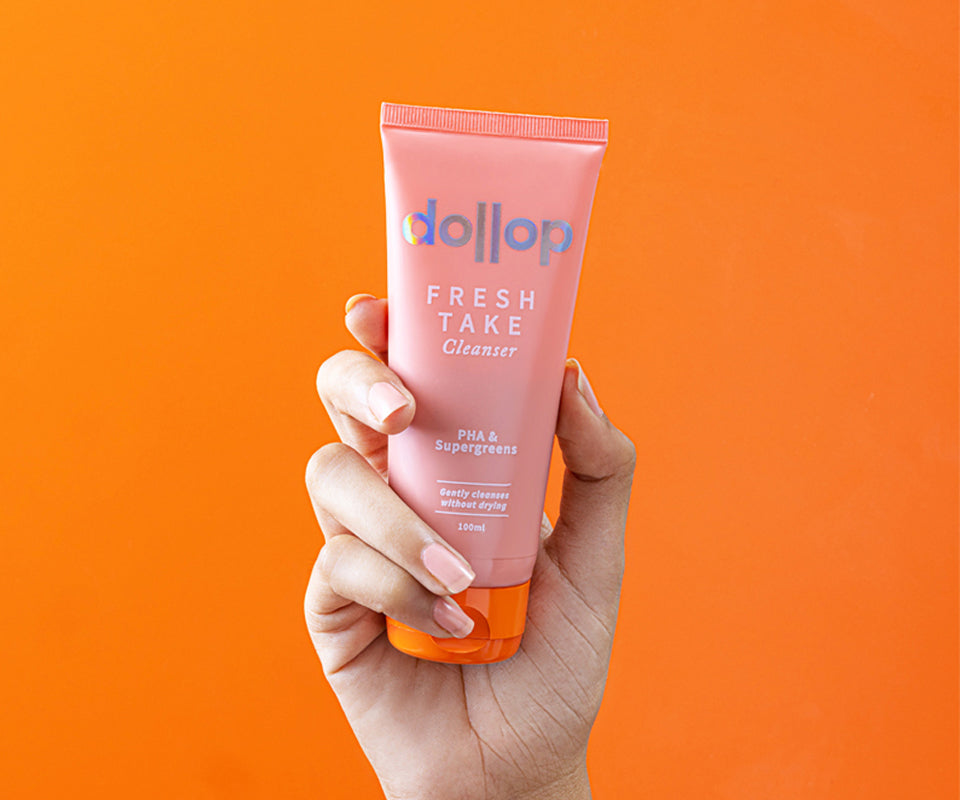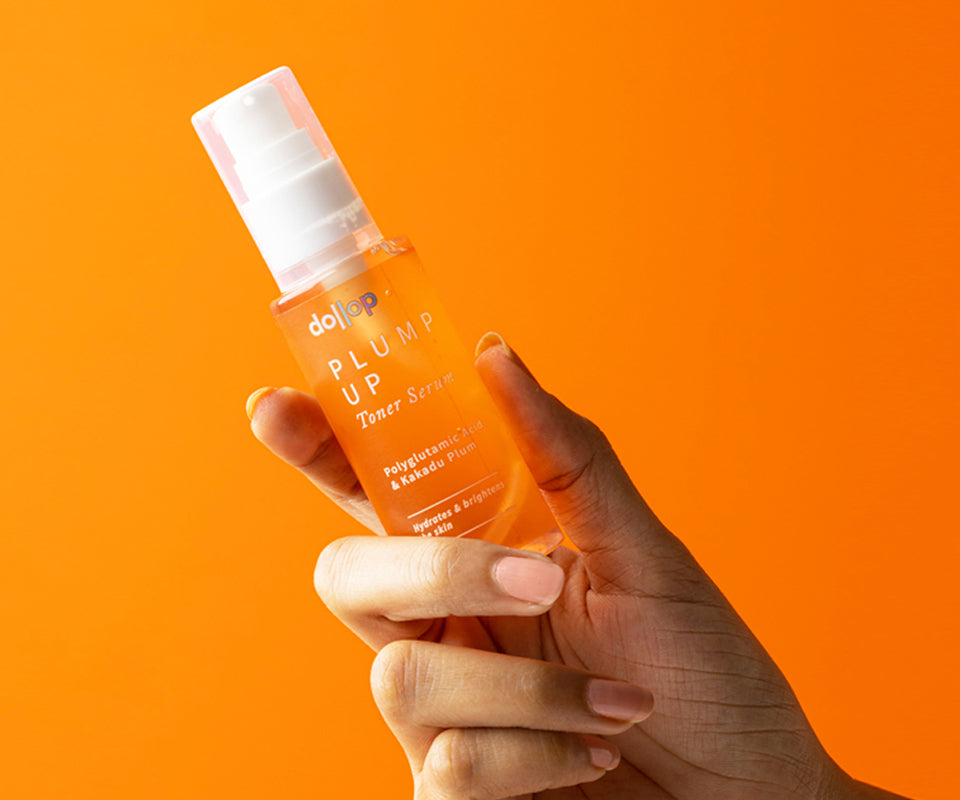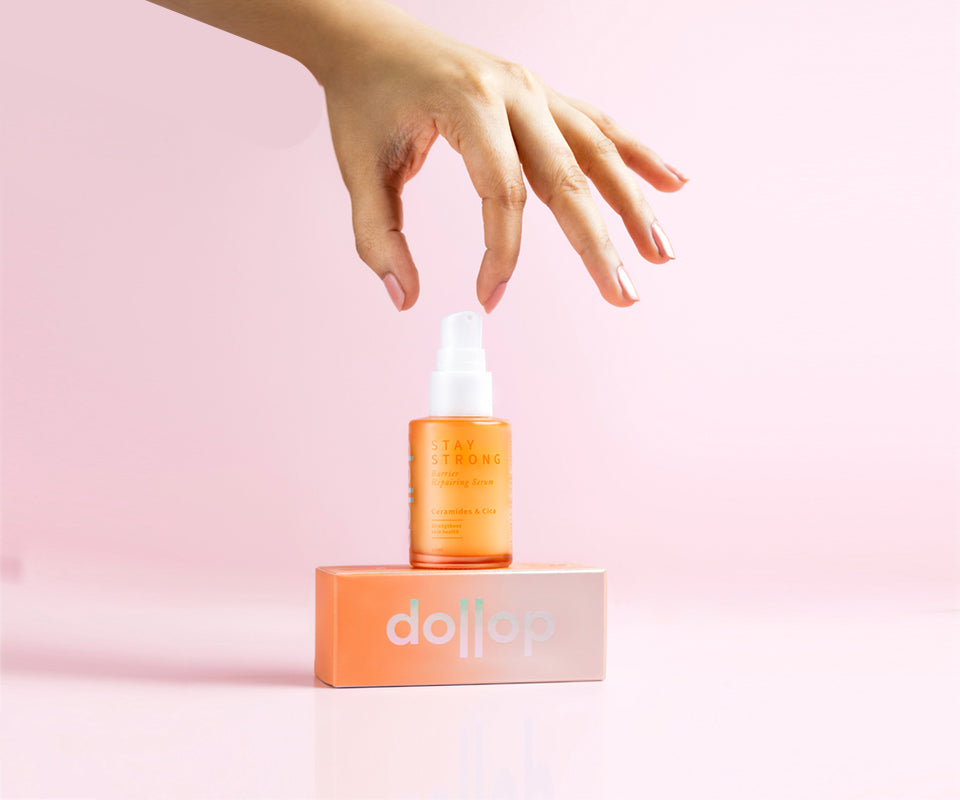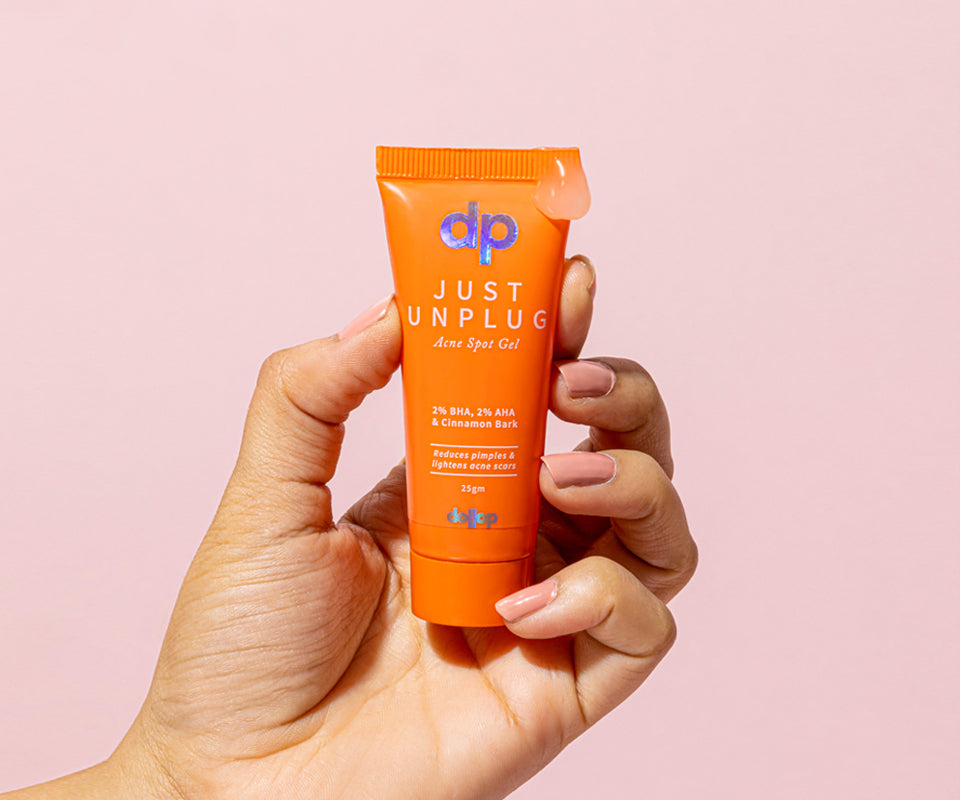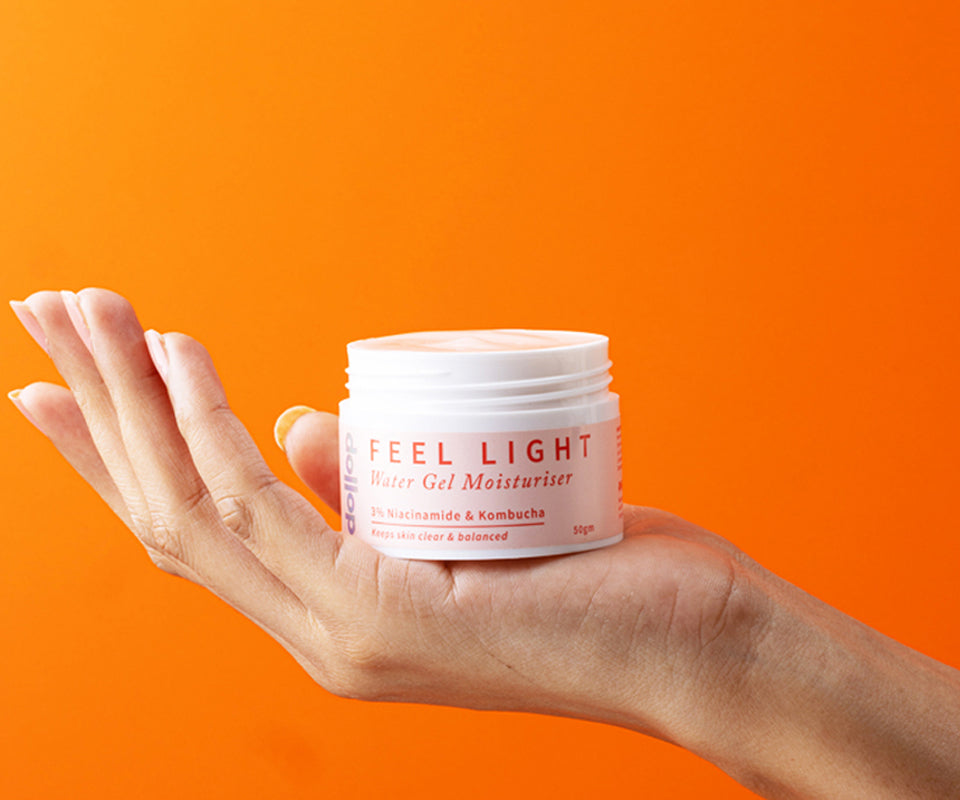The hero ingredient inside your favourite serums, moisturizers and sheet masks. But what is it exactly? Word has gotten around about its amazing benefits which includes moisturizing the skin and giving it that plump and glow. But this isn't it! Read ahead to know more about Hyaluronic Acid.
1. What is hyaluronic acid?
Hyaluronic acid is a naturally occurring chemical found in skin, eyes, and joints. It is a sugar that helps bind water to tissue, and thereby trapping water inskin. Moreover, it can hold upto 1,000 times its weight in water which increases hydration in the skin.
2. Why is the buzz around it relevant?
When we talk about well-moisturized skin, we're mostly referring to skin with high-water content. The scientific phrase for calculating how much water is lost from the skin is called transepidermal water loss (TEWL). When an ingredient prevents TEWL, it means it keeps your skin moisturised by preventing water from escaping the skin's surface. Hyaluronic acid performs this function by reducing the rate at which water evaporates from the skin surface.
3. Why should I use it?
The natural formation of Hyaluronic acid in our skin declines as we approach our 30s, resulting in loss of skin flexibility and water content. Leaving us more prone to sagging and wrinkles. This is why it's critical to begin using Hyaluronic acid in your twenties and stick with it as you get older.
Also, factors like harsh weather, unsuitable skincare, and unnoticed skin conditions can cause tiny cracks in the natural skin barrier, allowing water to escape. Although Hyaluronic acid is suitable for all skin types, it can do wonders for people with dry or mature skin.
- Does it have side effects?
The word ‘Acid’ scares many of us but there seems to be no reason to be concerned. Allergic reactions to Hyaluronic acid are quite unlikely as it is naturally present in the skin. If you do encounter negative effects, it's possible that they're caused by other chemicals in the products that you're using or the frequency of usage. But to be on the safer side, always do a patch test. If you still suffer any negative side effects, seek medical assistance from a dermatologist.
- How do I use it?
How you use Hyaluronic acid totally depends on the type of product you use it in. Moisturizers and serums are two of the most popular treatments. After cleansing, apply afew drops onto your face while your skin is still damp. Hyaluronic acid complements almost every chemical active, including retinol, vitamin C, alpha hydroxy acids (AHAs), and beta hydroxy acids (BHAs).

